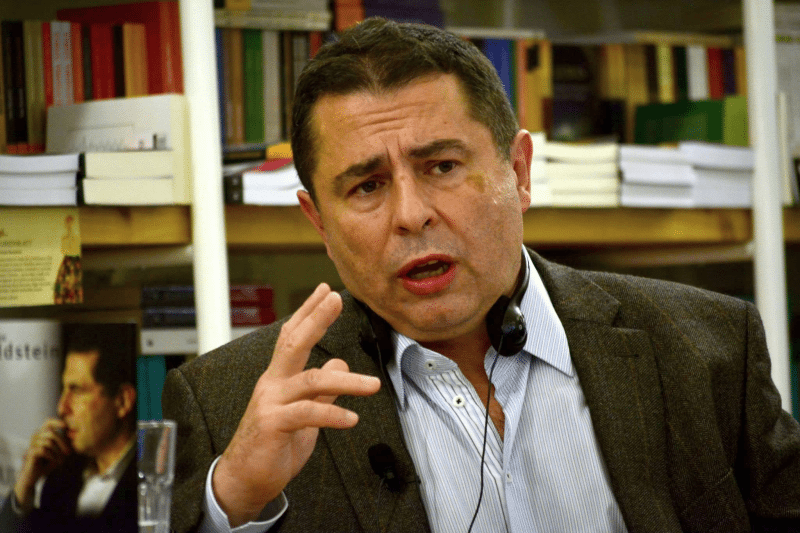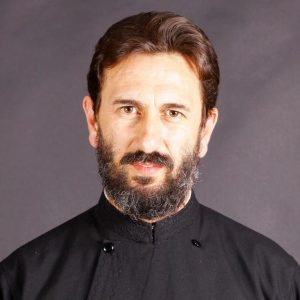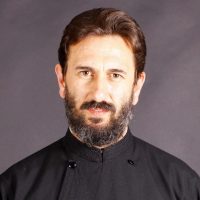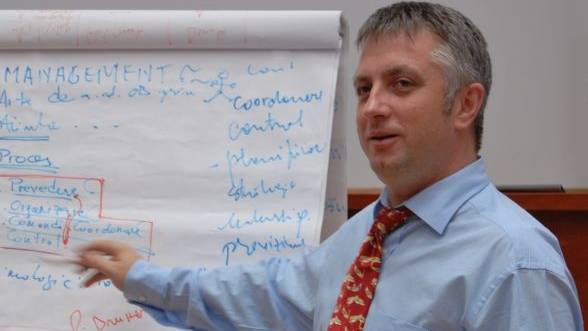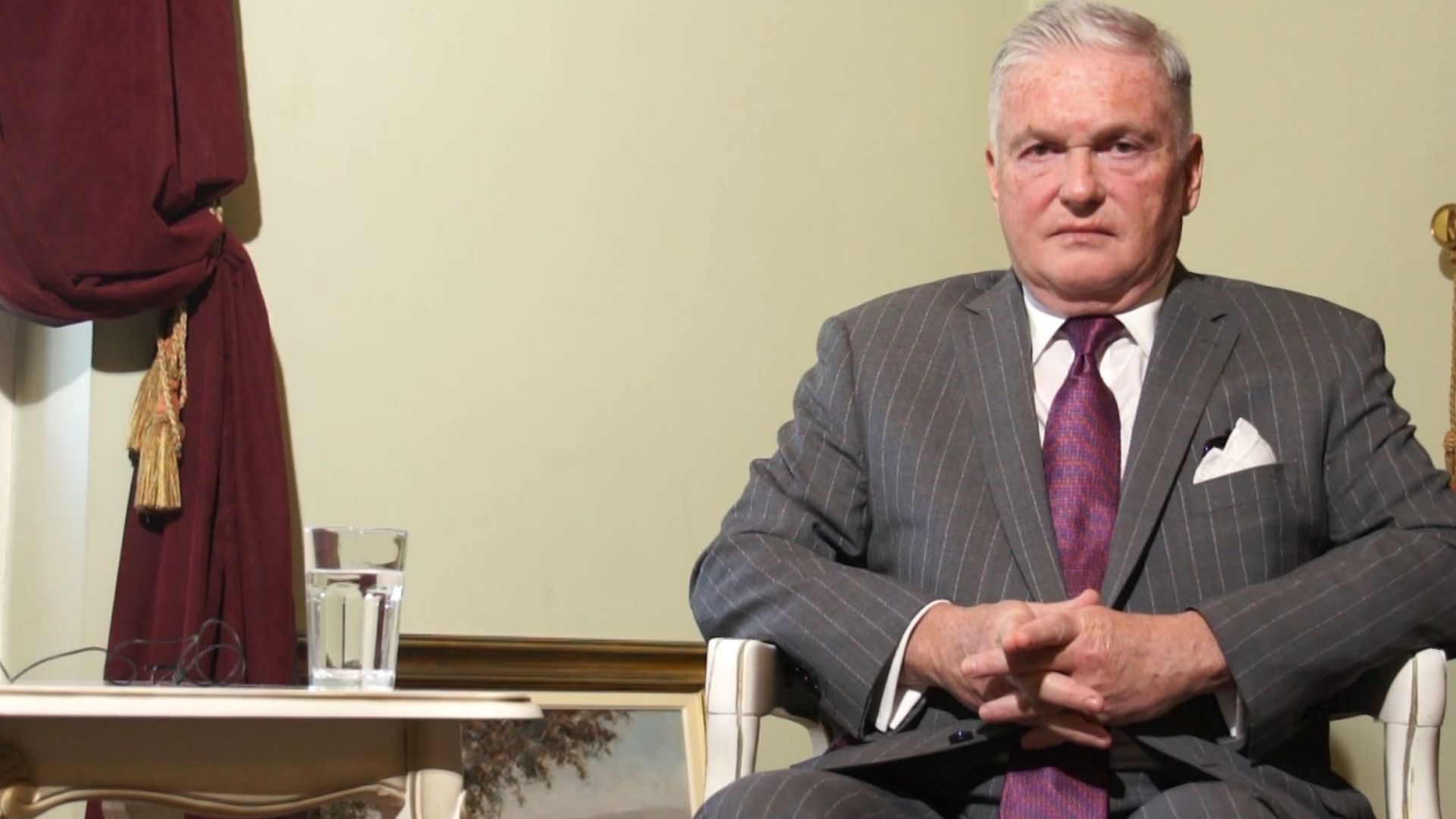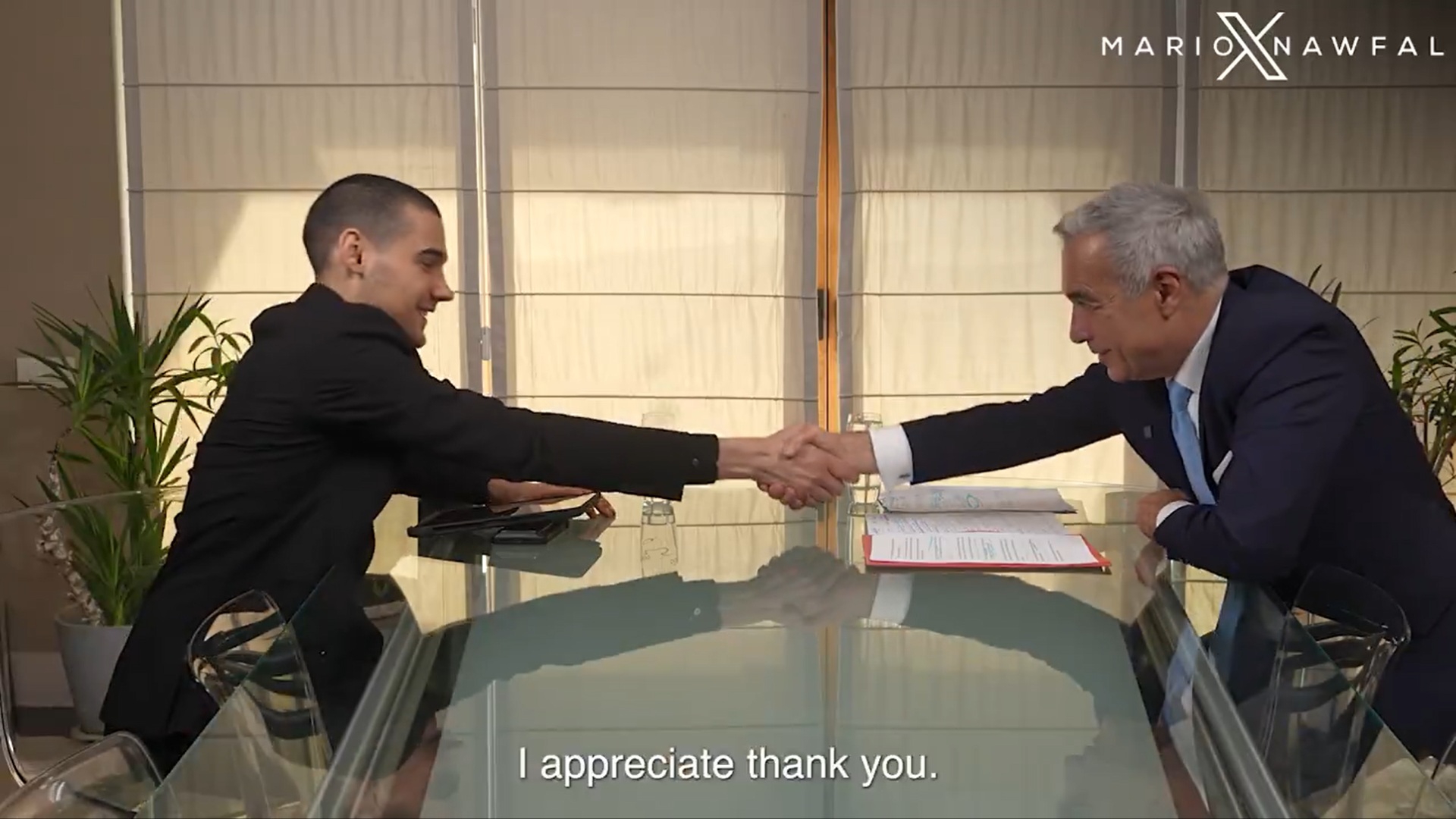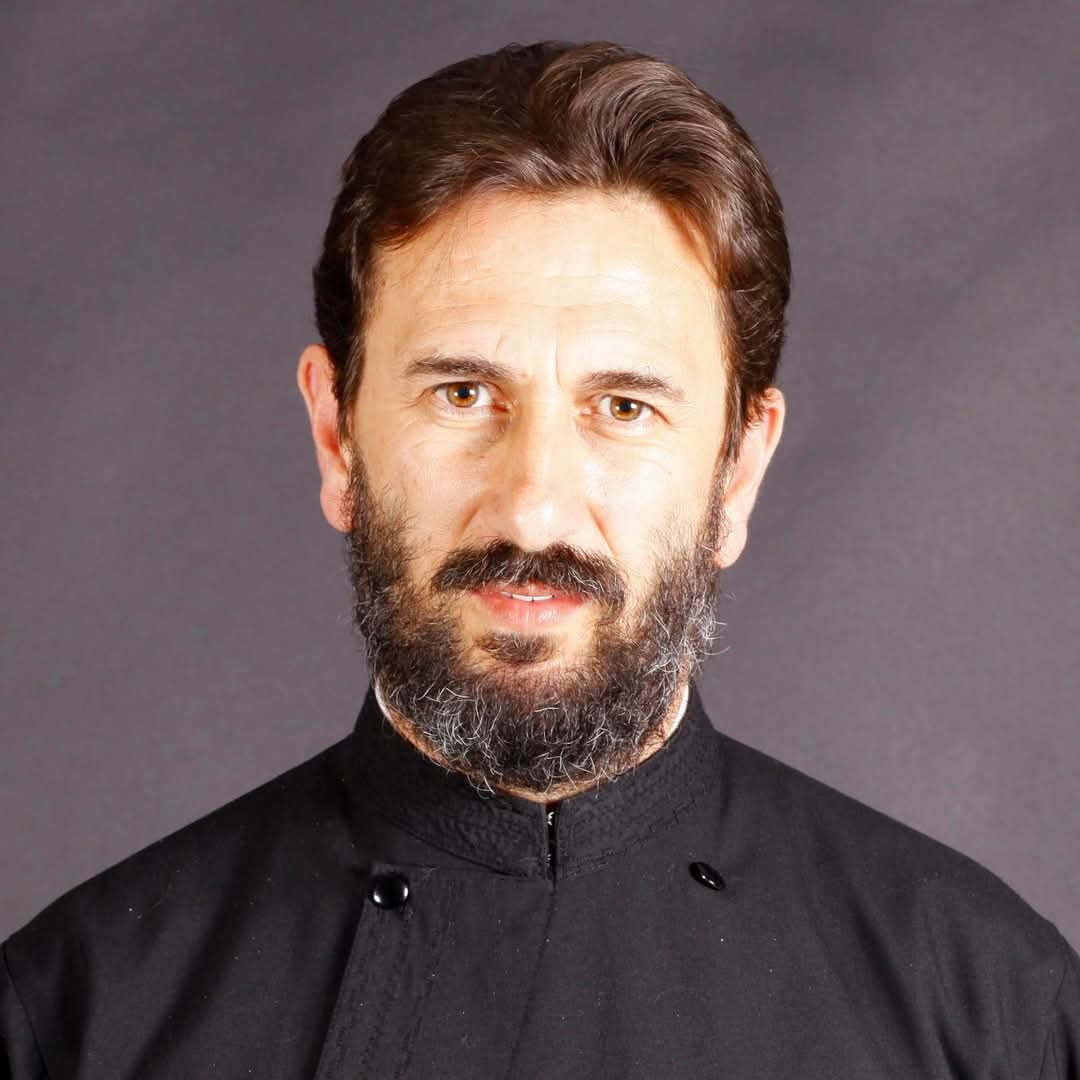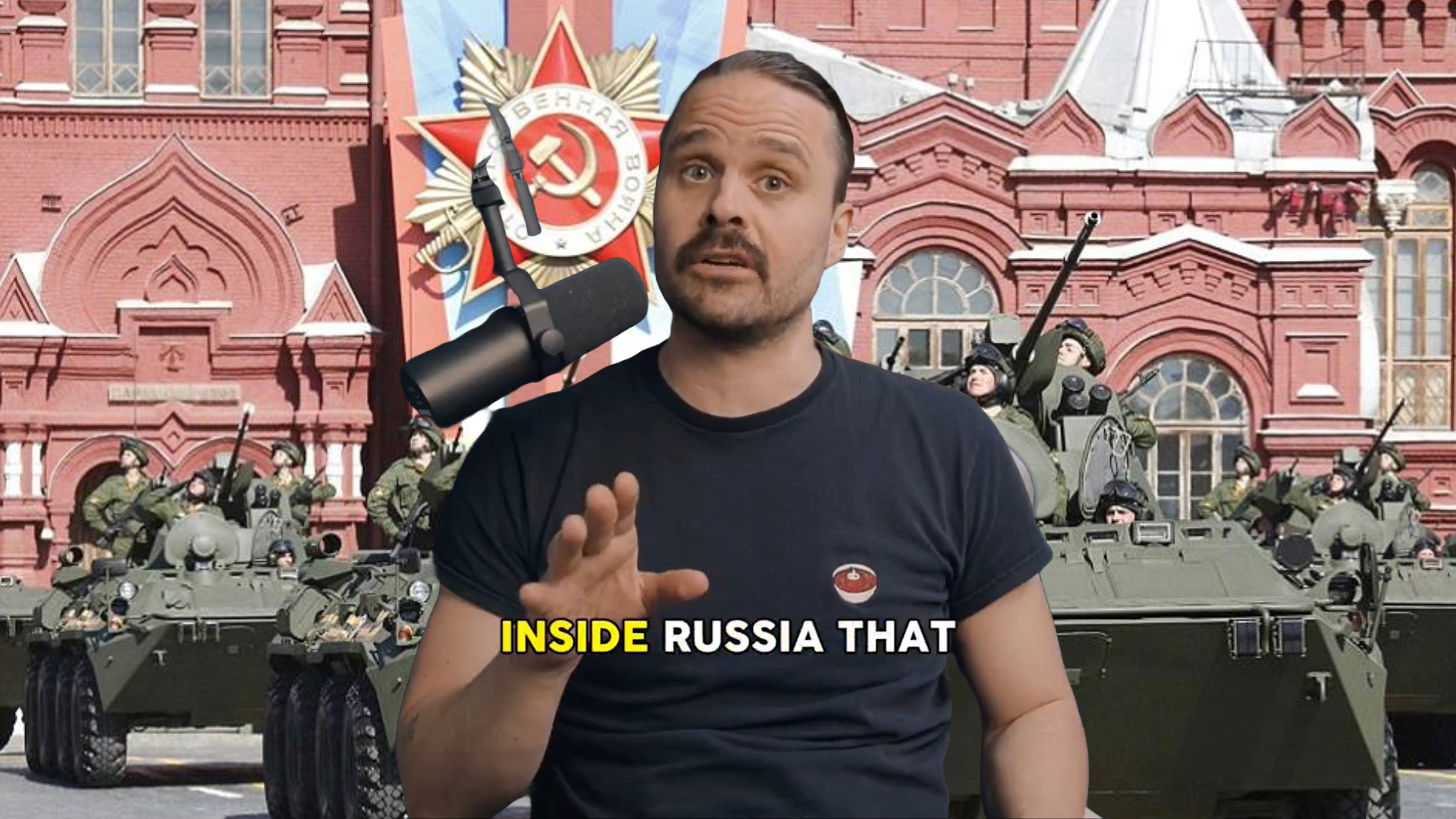Bronisław Wildstein is a Polish journalist and writer, and an iconic figure during the anticommunist Polish Solidarity movement – Solidarność. In an interview for the Romanian Conservative portal În Linie Dreaptă, Mr. Wildstein talked about the current political and cultural environment in Poland, about the similarities and differences between Poland and Romania, and about the similar historical experiences that bring together the two countries and Eastern Europe as a whole in the context of the Russian Imperialist threat and of the EU. Mr. Wildstein also explored the radical political and cultural developments taking place in Europe and the US.
ILD: Certain commentators are comparing the protests to defend the rule of Law in Romania with the Polish opposition’s protests. You wrote in Polish about the reformation of the Romanian Justice system, so you know both sides. What do you think about this comparison?
Bronisław Wildstein: Such a comparison is nonsensical. One may find superficial semblances between the two – but nothing of substance to sustain the comparison. And this is because the situation in Romania is radically different from the one in Poland, especially when it comes to the Justice system.
In Romania, during the two terms of president Băsescu and the government he supported, especially during the time when Mrs. Macovei was the Justice minister, the reformation of the Justice system has indeed been accomplished. The Romanian Justice system was reformed to such an extent that it is now, indeed, a barrier against corruption and it is indeed defending the society from the post-communist oligarchy who would definitely want to take over the whole power.
Sometimes, this oligarchy is successful here and there, but it is always bounced back by the barrier of the justice system.
This barrier has been consistently constituted – since it persists in prosecuting the corrupt politicians who, in the absence of this barrier, would do whatever they please.
This is not the case in Poland – where the justice system’s reform process has just begun now. —-
In Poland, the situation is exactly the opposite of the Romanian status quo.
In Poland, we have a justice system that comes straight from the Communist System – especially the so-called magistrates’ corporation. Basically, at the Round Table, in the year 1989, [when the transition of power from the Communists to freely elected governments was negotiated] it was established that judges would not be fired for political reasons.
This meant, in de facto terms, that the composition of the justice system of the communist regime was fully transferred into the post-communist regime. Here I should add that, although surely there were exceptions – and indeed there were decent judges even during the communist regime – still, by and large, these people were NOT appointed because they had they highest moral and professional standards.
As we can all remember, they were appointed to serve the interests of the regime. They were meant to be an instrument of accomplishing the totalitarian policy.
It was said, in early 1990s, after the fall of communism in Poland, that the fact that the judges are appointed for life is a great gain. This is absurd. Sure, in certain Western European countries judges can not be kicked out for political reasons, BUT, they are also appointed right from the get go on competence criteria as a constitutional element of the rule of law.
This was not the case in the justice system back in the communist era – quite the opposite. The People’s Republic of Poland was not a state with the rule of law – this is something that is openly acknowledged even by the judges of that era. In fact, the appointees of the communist era who are still judges today, who even broke the law of that time too – they defend themselves in public by saying that the People’s Republic was not a state with the rule of law!
Moreover, this justice system was very meticulously purged during the Marshall Law, when almost all judges who weren’t entirely obedient to the Communist Power were fired. Those who objected even the slightest and even those who weren’t executing the will of the communist power with enough zeal – they were all fired.
Therefore, this corporation of judges was entirely inherited by the Third Polish Republic. (which is the name for modern-day Poland. The Second Polish Republic is the Communist republic). Of course, one can say that many years – 27 of them – have passed since then. But this is a highly specific corporation, one that self-replicates. The judges themselves are the ones that appoint new judges. And they appoint people in their own image and likeness.
There exists a very specific typology of person considered. Not to mention the family relationships as judges are literally bred inside the same families – they’re almost a cast that comes from the communist regime – although this isn’t always the case. They specifically look after a certain kind of attitude towards things when appointing a new judge.
And, of course, we can find many decent judges in the Third Republic, or in contemporary Poland.
But, generally speaking, we’re dealing with a corporation whose purpose is defending the status-quo; defending an oligarchic power exerted by the few in their own interest – that’s the power in the Third Polish Republic. An element of this power, perhaps the most important one, was precisely the judicial corporation.
These reforms, that are currently being proposed, do represent an attempt to give the judicial power back to the society because up until now it was entirely in the hands of this cast – the term “cast” was even used by a known judge from the Polish Judges’ Union, which is the decision-making body of the corporation.
Of course, the judges should be independent in what they’re doing, in making decisions and in judging the cases in their courts. But they shouldn’t rule, like it is the case now in Poland – they shouldn’t rule over all expects and be no element of choice; and the society having no influence whatsoever over what’s going on in the justice system.
In the United States, judges are elected. In most of Europe, the elected officials have a say in appointing people in various levels of the justice system. No such check and balance exists in Poland. Everything is decided by the judge and any attempt to democratize this situation, to allow the representatives of the society to have some influence over the halls of power of the justice system… any such attempt is painted as an attack against the independence of the judiciary, which is really pushing it to absurd levels of dishonesty.
As a result, I will say this again, the judges, this corporation of judges, have become the main defenders of the status-quo, the ones that blocked any change and, in doing so, they blocked, in fact, the democratically-expressed choice of the citizens. It is, thus, a situation that is exactly the opposite of what’s the case in Romania.
ILD: So you’re saying there was no reform in the Polish justice system in the last 27 years?
B. Wildstein: Not until now, no. Only now there are some reforms being adopted. And I really hope they will be implemented.
In fact, these things have manifested themselves in the case of the Constitutional Court.
During the previous government led by Prawo i Sprawiedliwość, between 2005 and 2007, the Constitutional Court blocked almost all the laws proposed by the government, claiming that their SPIRIT was against the Constitution’s SPIRIT. And the Constitution’s spirit was whatever the supposedly all-knowing judges were guessing that week.
The same is the case with the whole scandal created by the Civic Platform Party, which decided to appoint five judges in advance. Namely before the predecessors has finished their turn. The Civic Platform appointed them precisely so as the new power be incapable of appointing new people. This was the root of that big scandal [that made international headlines] around the Polish Constitutional Court. I hope that scandal is finally over and that we will now be able to introduce reforms that will give the justice system back to the society, at least in part.
The issues run deep with the justice system. The courts run poorly and the Polish people have very little faith in the justice system. All polling data shows that the majority of the citizens don’t trust the courts.
It’s a system of institutions that works poorly and slowly, which means it bring various negative economic consequences – since you can’t get justice in the court and the cases run forever, for years on end.
The judges corporation was involved in a series of scandals over the years, too. We’re now dealing with the rather famous scandal of restituting the real estate properties in Warsaw.
The scandal is like this: Allegedly, the rightful owners of various real estate in Warsaw are being given back the properties that was stolen from them by the communist power. That’s the official story. In reality, the real owners, for various reasons, could not find their way through the entire bureaucracy of the city hall and the justice system – so they sold their rights for claim for minuscule prices to the people inside the system: judges, lawyers, jurists, and so on. And then these people managed to get those properties almost immediately – and it’s highly expensive real estate we’re talking about here. This is just one example of the shenanigans pulled by the judges corporation.
The problem is that this corporation was never held accountable. The judges have immunity. So, in order for a judge to be held accountable for a crime, a collegial court has to agree. These cooperative courts and these commissions have almost never agreed to allow the prosecution of any judges. Moreover, they never agreed even to suspend or remove a judge from his or her position.
There was a highly famous story, when an independent Polish journalist posed as a collaborator of Donald Tusk (now president of the European Council, t.n.) and called Judge Milewski from the Gdansk Court House – and asked him to arrange a certain component of a case and change the term in the case of the Amber Gold Affair. This was illegal, but the judge agreed entirely to do it.
When the story was made public, for a long time nothing happened. In the end, after a huge storm, the judge in the story was quote-unquote “punished”… by being moved to the Bialystok Court House. This was the punishment.
I could on like this endlessly about how the Justice System in Poland works, but I will stop here.
ILD: One of the most frequent slogans in the Romanian protests was: “PSD- the Red Plague”. This shows that people are indeed aware of the fact that the origin of corruption stands with communism. What’s the situation in Poland? Who governs, who is in the opposition, how do they all see themselves in relation to the communist past and what’s their relationship with the topic of corruption and the topic of justice?
B. Wildstein: Speaking strictly politically, the post-communist party, the SLD, that comes straight from the Communist party, and is the political party that ruled during the communist era, lost its significance completely and in the last elections, it didn’t even make the threshold to get into the current Parliament.
However, it needs to be said that there was another confrontation, between 2005 and 2007, following the Rywin Affair, which revealed that this system in Poland, when the post-communists governed, it shows that behind the closed doors, beyond this appearance of the rule of law and democratic system, in fact the most powerful do rule and establish various things and do whatever suits them and is profitable for them. Then their bidding is fully confirmed in the necessary institutions – such as the Parliament.
In 2005 took place the most important collapse of SLD, which then lost the elections and the collapse continued up to the last elections when the SLD didn’t even reach the 5% threshold to be in the Parliament. On the other hand, it can be said that the system of the Third Republic is was an oligarchic one in nature – namely a system where a few people dominate in their own interests.
But this power of this oligarchy is distributed – the political governance is just one side of the power. In the contemporary world the power is in the business field, of big corporations – such as the corporation of the judges, the corporation of the jurists, the media corporations and the cultural circles. These groups comprise a system that owns the power and gets privileges and it takes advantage of the situation in which a weak State can be the prey.
This role used to be fulfilled by the post-communist party, but it has since been taken by the Civic Platform party. In its two terms, in 8 years of governance, the Civic Platform represented the political branch of this system. They basically started doing what the post-communist SLD used to do.
In this sense, the clear distinction in Poland between the post-communists and the people of the Solidarity movement ceased to exist between 2005 and 2007. This is the case because this party, the Civic Platform, also claims its ties to the roots of the Solidarity movement.
But the whole system of the Third Republic can be considered a classical post-communist system – a classical post-communist oligarchy, in which the strongest groups come straight from the communist regime. The Judiciary is a perfect example of one such group.
ILD: Another comparison between Romania and Poland has been made relating to the fact that the ruling party, the Social Democrats, claim that the protesters in various Romanian cities refuse to acknowledge the result of the elections. As I’m sure you know, Romania had general elections in December 2016 and the social-democrats won them. It is a relative victory, since a huge chunk of the electorate did not vote. But, nevertheless, the social democrats won. The protesters say though that during the campaign, the social-democrats did not mention anything about attacking the justice system or amending the Criminal Code in this fashion. The same comparison was made with Poland too, because in Poland the opposition refuses to accept that it lost the elections and that Prawo i Sprawiedliwość is now the ruling party.
B. Wildstein: Yes, but we cannot compare all the aspects because in these two countries, the justice system is completely and utterly different. I do understand the Romanians’ protests, who say that the social-democrats, the post-communist party, did not campaign for the things that it is doing now – things that I can say are definitely undermining the rule of law and what was accomplished in Băsescu’s time. In Poland, however, things are exactly the other way around. In Poland we don’t have the rule of law – we can, at best, say we have the rule of the jurists.
In Poland, The Law and Justice Party campaigned for profound reforms, including a thorough reform of the judiciary. So the Law and Justice Party is not doing anything that it did not promise to do. So it’s a whole different situation than in Romania.
In fact, this is why the Law and Justice Party was elected in the first place in Poland: Because it did offer and promise a profound reform, a fundamental change of this country, if you want, and bringing back the State institutions to work for the people. This was the manifesto of the Law and Justice and they’re now executing it. They haven’t done, so far, anything they didn’t promise they’ll do. The opposition, right from the get go, opposed this party’s very right to govern.
The whole scandal around the Constitutional Court that I mentioned earlier in this interview is tied to the fact that this move was going to be the Liberal Left’s insurance policy through which the Law and Justice could be elected, but could not do anything of substance since all of its decisions would have been blocked by the Constitutional Court which would’ve been entirely dominated by the people connected with the old power – not just the Civic Platform, but the whole system because, as I was saying earlier, the Civic Platform is just the political branch of the system.
Various recordings have been published in the press, for instance on the wPolityce portal, which shows how the former president of the Constitutional Court, Andrzej Rzeplinski was saying that we must immediately tackle the legislative projects of the conservatives and block the very possibility of them being implemented. He outright said it!
So, knowing this, the situations are not comparable at all. Here, in Poland, we have a very real attempt of blocking the democratic process. I would remind everyone that the so-called Committee for the Defense of Democracy (KOD) was founded the next day after the election night.
The Constitutional Court scandal had not begun yet – that one happened later on. There was no controversy at that point. Yet right from the next day after the election, this organization started whining to whomever would listen that the new ruling party is totalitarian in nature, that it aspires to rule in a totalitarian fashion, that it wants to take over all of the institutions, etc. etc. That’s total nonsense!
The complicated relationship with the EU
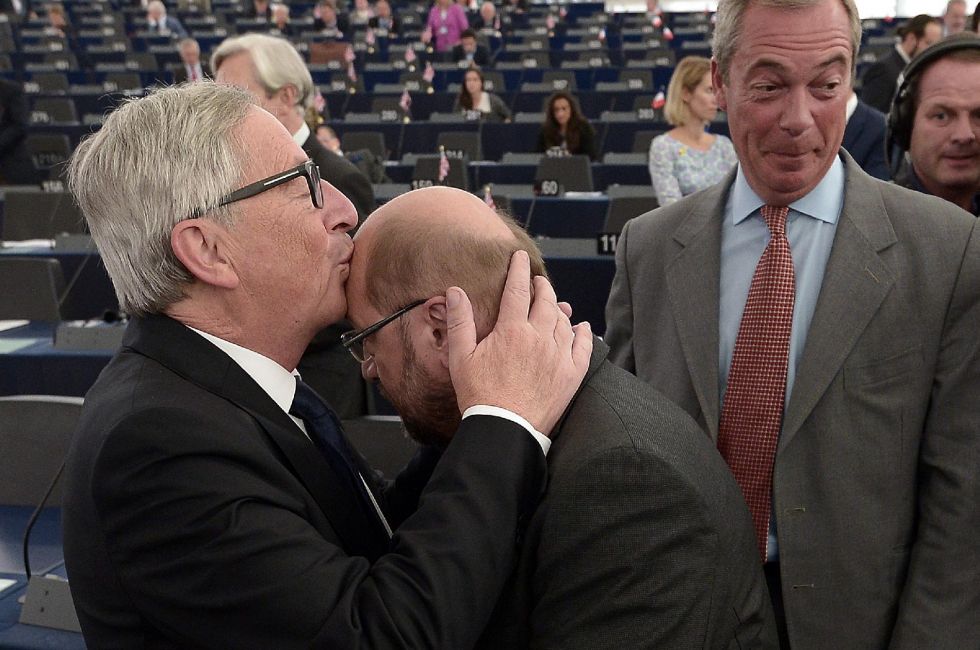
ILD: Poland was harshly criticized by the EU, by the European Commission, there were even special hearings dedicated to Poland in the European Parliament. There were a few whispers of concern about Romania too – all-be-it much fewer. But those who protest in Bucharest and across the country are content with these interventions by the EU. On the other hand, the social democrats are mad at these interventions. Moreover, the government and Liviu Dragnea – the leader of the biggest political party, complained that multinational corporations and various international networks, such as Soros’s networks, were involved in the protests by encouraging them or even paying for them.
B. Wildstein: I’ll get back to what I said earlier. The situation is not comparable. I do understand the EU’s actions in the case of Romania – and they do have a rather positive character. They’re definitely not unjustifiable – as the defense of the rule of law that was achieved in Romania is a positive thing.
But, in the case of Poland, the EU is interfering in internal affairs where it doesn’t have jurisdiction and it’s doing it solely motivated by politics. We have to look at this from a broader perspective.
The EU has more and more of this kind of character – the entirety of the West has this oligarchic character. The phenomenon, which acutely manifested itself in Poland in the form of the oligarchy that I just described to you, is a phenomenon encountered allover the west. Sure, it’s not directly tied to communism – but it’s a system of the dominant elites that represent the ideology of the Liberal Left.
This dominant ideology, in turn, serves as legitimacy and justification of these elites exerting their power. What we see now in the West constitutes the revolt of the nations against this type of situation: In the US, through Trump’s victory – putting aside for a moment Trump’s person and character – we’re basically dealing with a revolt of regular people against the oligarchization of the social life; against the elites that impose a certain ideology; who beat down the fundamental identities – like the national identity.
The phenomenon is much more generalized, and I’m thinking here at what happened in Hungary and Poland too; regardless of how we look at those elected, they were still elected to represent the people that opposes this dominant ideology.
And this triggered the West’s indignation because the West adopted this dominant ideology wholesale, with all of its manifestations and with all of its new generations of so-called “human rights”, which, in fact, no longer have anything to do with the fundamental rights of man.
This whole counter-culture chips at the foundational identities of humans – starting with the national identity and ending with family and sexual identity. All identities need to be questioned or abolished, all in the name of quote-unquote “emancipation” and “liberation” which, in fact, is neither emancipation nor liberation – but rather a deprivation of a person’s identity.
Questioning and opposing this ideology brought indignation. This is one aspect of the issue.
The other aspect is that these representatives of the people are inconvenient to the dominant systems in the West, for the big business, who will have to face the defenders of national interest and not those who would bow down to the strong both domestically and abroad.
Which is why we see here a blending of interests of ideas and concrete, material interests. So this is the root of the pressure exerted by the dominant circles of the European Union.
But we must say that we live in a moment in which this construction, made almost 30 years ago, which seemed to solidify more and more, a construction also constituted on oligarchy, but a construction which is now starting to crack and collapse – as the protests by these societies increases.
A keyword that can be heard more often now in the political jargon of the West is the term “populism”. All those who question the status quo, this oligarchic system, which is justified by this dominant ideology, are called “populists”. In my opinion, the Law and Justice Party cannot be described as populist. Trump is a whole different matter.
But this was indeed the case in Western Europe because certain ideas have been pushed aside from the public debate. Because it was simply not allowed to speak in public about various matters, such as the issue of mass Islamic immigration and other issues, these causes were taken over by the populists – like the Front National in France, they are the real populists.
The question is now who takes responsibility for the fact that such important matters are being take over by populists – as this happened because the mainstream parties stay away from them, pretending they don’t exist – but these problems are real for the average citizen, nonetheless.
Russia is doing its best to break Europe again
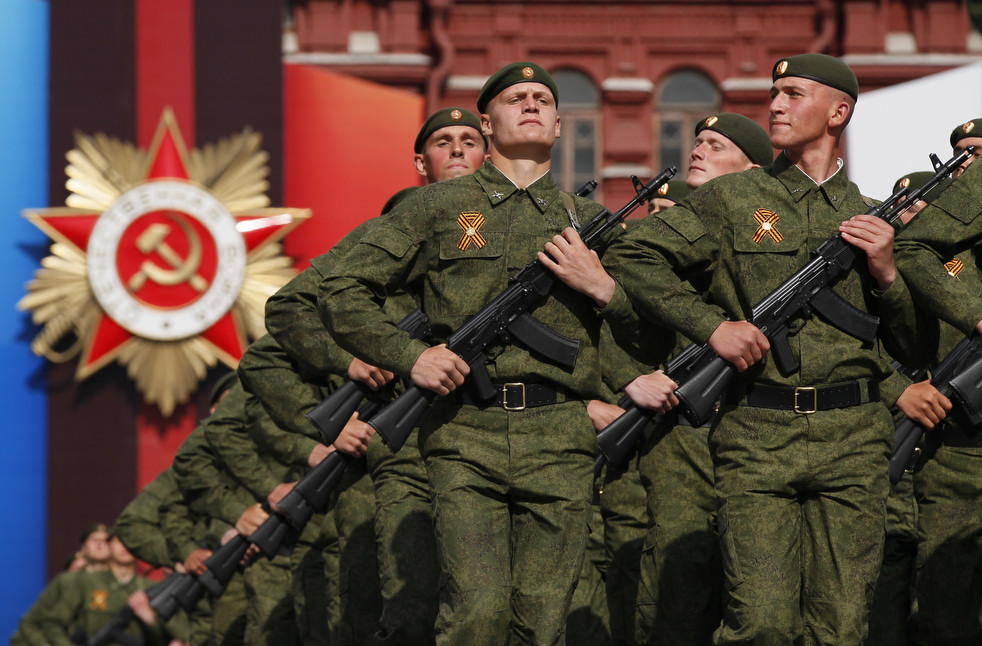
ILD: We have something highly important in common with Poland – the fact that we have a highly realistic approach when it comes to Russia, and we are under no illusions about Russia. All polling data shows, and everyone knows that in Romania, no politician can openly claim to be pro-Russia. Now, there are reasons to suspect the social democrats and Liviu Dragnea that they might be Russia-leaning because they prefer a world without rules for the politicians. There have been some contacts with the Russians, there was that visit from the Russian Ambassador to the Foreign Affairs minister, a big scandal emerged from that. On the other hand, Russia also expresses it’s point of view, we can see that Sputnik is strongly defending the Dragnea-Grindeanu Government, against de protesters. What is the situation in Poland? How does Russia see the Law and Justice government, the KOD protests and other movements against the Prawo i Spraviedlivoshch?
B. Wildstein: The situation is very similar in Poland too, as you have said. It is very hard for someone to have a political career if one is expressing sympathy towards the imperial interest of Russia, or Russia’s imperial policy, or accepts the current policy pushed by Putin. Nobody can do that. Even the Civic Platform, which, for a short while, around the Smolensk disaster, behaved as if it wanted to change this relationship, they still had to back off.
After all, we are dealing with imperialists, who explicitly want to dominate us; they want to recover their old sphere of influence in which Poland would be subordinated to Russia, at least in matters of international and foreign policy – that’s how the story of Poland or Romania being NATO members would be scandalous or, even more, that Poland and Romania want arm themselves as a consequence of their membership.
So this kind of overt pro-Russian politics is not a thing in Poland at all. There are a few marginal pro-Russian groups, but nothing of big relevance. There is however a certain level of danger that the post-communist party would want to play for Russia. Still, in Poland, so far, none of the big political parties does that.
Russia however is a different matter. Russia manages to exert its international influence in many aspects.
For example, in Poland, a fundamental matter is the relationship with Ukraine. The Poles, naturally, supported the Ukrainians’ aspirations towards independence and supported Ukraine against the Russian aggression. Now, as I believe you have observed too, several groups have emerged, tacitly endorsed by Russia, which relentlessly try to revive the old antagonism between Poland and Ukraine.
The problem is real, since, during World War II, in the year 1943, there were, indeed, horrible massacres in Western Ukraine in which Polish people were killed, ethnic cleansing. It is hard to say exactly how many people were killed then as the information is not thoroughly reliable, but at least 100,000 Polish people perished then. The episode was absolutely horrifying and these crimes were never tried in a court of law. Moreover, this was the ideology of the Ukrainian Insurgent Army (the UPA) which represents the reference point for those who fight for the independence of Ukraine.
So these groups insist among present-day Poles and show them that present-day Ukraine refers to Stepan Bandera and the UPA. Of course, the reality is that present-day Ukraine uses Bandera references as the army that fought for independence, not because it killed Poles. Most of them don’t even know that because during communism this reality was never presented as they were inconvenient, and I need to add that these massacres were carried out at the behest of the Soviet Union.
In any event, the attempt to seed discord between Poland and Ukraine is a method of action used by Russia. But, of course, it’s not only that. Because, in general, this whole giant Russian political offensive has many dimensions, sometimes paradoxical.
On one hand, and you guys know this very well, Putin’s ideologue, Alexsandr Dugin, routinely calls the West putrid and rotten and against that rotten West, the only refuge, the only bastion, which would supposedly defend the Christian tradition – not just the Orthodox one – but the entire Christendom – that role of bastion would be served by Russia.
This is a new development, historically speaking – because the old ideologues of imperial Russia used to say that Russia is the defender of the true Christian tradition, namely the Eastern Orthodox tradition – but now, the claims have been widened. We’re now supposed to believe Russia will defend the entirety of the cultural and religious foundations of Europe.
So, on one hand, Russia has excellent relationships with those parties that represent the revolt of the society – parties like Front National in France, Alternative für Deutschland in Germany, etc. etc. It has excellent connections with these parties. On the other hand, Russia gets along well with parties like the SPD in Germany – and SPD manifests itself as being very pro-Russian and generally positions itself against the sanctions. So we have a confused situation, right as the West is going through a real shock, politically speaking.
I believe this is a fundamental turning point which will last quite a while. I mean, a certain type of politics will end. An era is approaching its end. A certain politico-civilizational construction whose instrument was the European Union.
Now, the question is what will come out on the other end? Russia is doing its best to break Europe again.
On one hand, I am critical towards the current configuration of the European Union. But, on the other hand, I wouldn’t wish the collapse of everything related to the European community – because some of those common elements, the fact that Europe has indeed started to act in one voice in certain areas, the fact that some of the differences were overcome, are real accomplishments of Western Europe. It would not be a good thing if we would get back to entirely closed countries. I hope it won’t come to that. However, the unreasonable emphasis on more European integration may indeed take us there.
And in all of these, Russia keeps on interfering, trying to break any form of western community – whether it’s the EU or NATO – and it does that from all sides: from the Right, from the Left, from wherever it can. Because this is a purely cynical game played by Russia – with the purpose of recovering an imperial position.
An enhanced Visegrád Group is possible
ILD: How should the alliance between our nations work in the current geopolitical and cultural context? We all realize the Russian danger and we have in common – Poland and Romania – a deep attachment to our Christian roots. Vast majorities in both countries declare themselves Christians in censuses, they affirm a belief in God, they trust the family, they’re against “gay marriage” and so on and so forth. And because we have these things in common, we are in the same region, we have similar historical experiences. How could we develop this alliance?
B. Wildstein: I really do hope the relations between our nations will progress. At the moment, there this Visegrád Group. Formally speaking, Romania is not part of it but I think and hope that in time the gropup will be extended. And this is precisely because, as you correctly said, we have a certain level of common experiences, in various areas.
What I mean by that is that we, unlike Western Europe, know all too well that we are mortal.
We are mortal nations and mortal cultures. The entirety of history showed that to us. It was first the Turkish threat – though that one was more for you guys, we had to deal mostly with the Russian and German threat. As a result, we lost our independence for hundreds of years.
So we know very well that our existence is threatened. This is a conscience that does not exist in the nations of Western Europe.
We also have the conscience of the cultural threat. It’s not just the loss of independence but also the loss of the cultural identity. We lived that to the fullest extent during communism. Communism meant an attempt to uproot our culture. Such an awareness makes our attitude to be much more conservative as we do realize that we must protect this culture. That, in spite of other appearances, this culture is fragile good that can indeed be lost.
In this sense, our region was some sort of a canary in the coal mine for what has now began to happen allover Europe, these elections in Hungary and Poland showed that our region is not a periphery, sometimes certain developments start here. So there is a chance for all these nations, Ukraine included, to form a system that can reconstruct that European culture, and influence the reality and the status-quo for the whole of Europe. This will be, of course, a very long process.
It’s funny that the former Polish government used to routinely refer to the “Weimar Triangle”; the propagandists, the so-called “journalists”, the controlled media of Third Polish Republic used to say that “it’s great that Poland is part of this triangle with Germany and France”. But that meant actually nothing because we, in the triangle, meant exactly nothing.
And we could not mean anything there because Germany and France are more powerful than we are. Sure, it meant Tusk or some else could take a nice photo with the others, who would pat him on the back – but that meant nothing in real terms.
On the other hand, in an enhanced Visegrád system we are peoples that are united not only by common interests but also a common destiny. Besides that, we have the awareness that nobody wants to dominate, that none of us has imperial ambitions – we just want to last. We are the ones threatened by Russian imperialism.
In this sense, there is a common perspective. But, of course, accomplishing this will take time, especially culturally. For instance, in Poland there this longing to be “like the West” – an idea that is routinely exploited by the ideologues of the Third Polish Republic who claim that any attempt of making our own destiny is turning back the clock and that all we can do is be some sort of Frenchmen or Germans – but a bit more stupid. This is nonsensical.
We have our own history, our own identity and here, as I said, this identity and destiny makes us feel much closer to the Romanians, the Ukrainians, the Hungarians and the others.
Interview by Anca Cernea, translated in English by Lucian Vâlsan
You can read the interview in Romanian, here. You can listen to Lucian Vâlsan reading the article in English, here.

